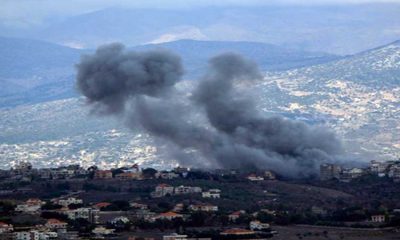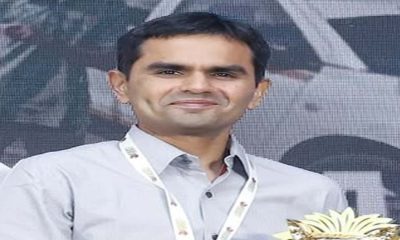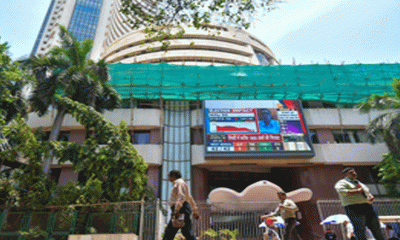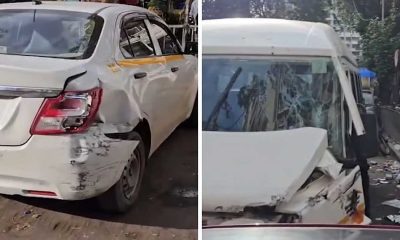International News
Sonia Gandhi’s mother passes away in Italy
Congress interim president Sonia Gandhi’s mother Paola Maino passed away at her home in Italy on Saturday and her funeral took place on Tuesday, party leaders said on Wednesday.
In a tweet, Congress General Secretary Jairam Ramesh said: “Smt. Sonia Gandhi’s mother, Mrs. Paola Maino passed away at her home in Italy on Saturday the 27th August, 2022. The funeral took place yesterday”.
Sonia Gandhi is abroad for her medical check up, and is accompanied by both Rahul Gandhi and Priyanka Gandhi. She was also supposed to visit her ailing mother.
Rahul Gandhi is supposed to return early and address a Congress rally in the national capital on September 4.
International News
Pakistan fears losing more than diplomatic ground with Kabul turning to India
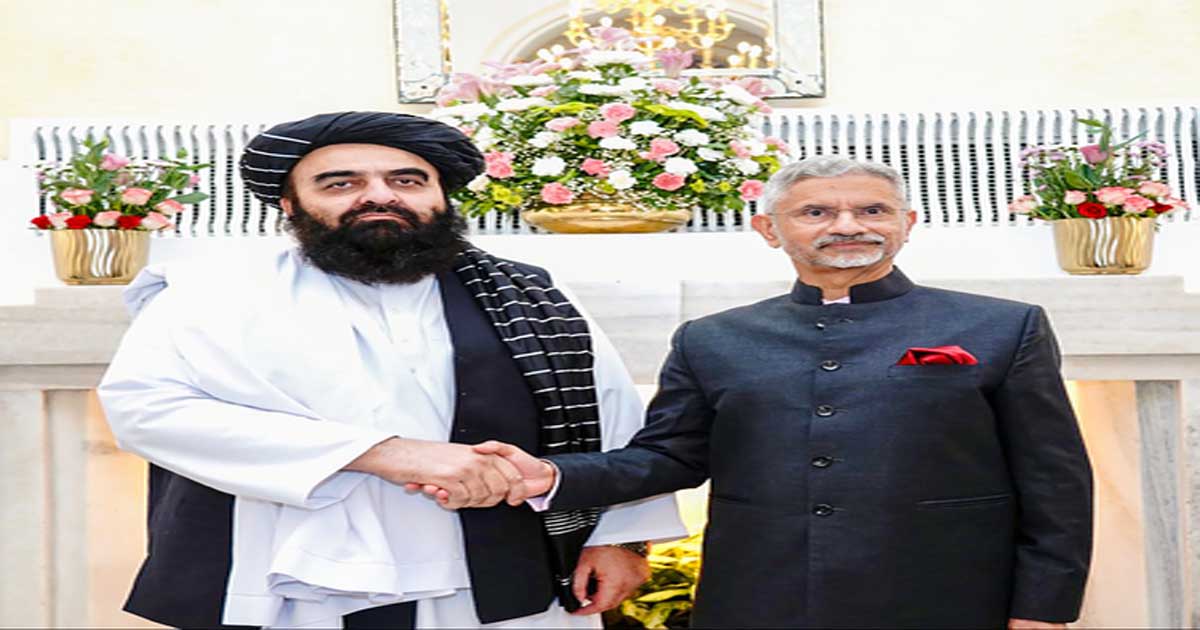
New Delhi, Oct 10: Pakistan could never imagine that a group it once raised and used to spread terror in neighbouring countries would one day run a government and realise that diplomacy does not flow out of the barrel of a gun.
When on the receiving end, Pakistan’s Defence Minister Khawaja Asif stated that Islamabad has “run out” of patience over the use of Afghan soil by “terrorists targeting Pakistan”.
He has also made a bizarre statement, claiming that Afghans have always stood beside India “yesterday, today, and tomorrow”.
If indeed his country had offered support to Afghan refugees, it was to raise a militia, not out of compassion. And all these rhetorics come when Afghanistan’s Foreign Minister Amir Khan Muttaqi is visiting India.
Pakistan has itself soured its relationship with the Taliban, attacking Afghanistan’s border areas, even resorting to aerial bombing, and driving back thousands of refugees from its land to an uncertain future.
Kabul has always refused to recognise the Durand Line – then hurriedly drawn by British occupiers – as a legitimate border.
The porous areas have witnessed intermittent skirmishes, affecting trade and transit. After the withdrawal of US-led troops, Islamabad expected the Taliban to remain eternally grateful and jump to its bidding, but the regime’s assertiveness has disrupted that. Kabul’s diplomatic overtures towards New Delhi have unsettled Pakistan.
While India does not officially recognise the Taliban regime, its pragmatic engagement signals a shift in Kabul’s foreign policy orientation. For Pakistan, this represents a strategic loss and a potential threat.
India’s growing ties with Kabul, combined with its strategic partnership with Iran, amplify these fears.
Possible increase in India’s diplomatic and trade relation with nations in Pakistan’s immediate neighbourhood blow winds of caution for Islamabad.
Meanwhile, Pakistan’s economic ties with Afghanistan have also suffered, with border closures, refugee deportations, and diplomatic tensions having disrupted transit routes.
India’s investment in alternative corridors like the International North–South Transport Corridor (INSTC) and Chabahar bypasses Pakistan entirely.
But following the re-imposition of sanctions against Iran and the Chabahar Port in particular, foreign companies became reluctant to participate in the port’s expansion.
India took over operations in 2018, and used it for trade with Iran and other countries, and also send relief materials to Kabul. Islamabad is eyeing Muttaqi’s India visit warily, fearing diplomatic isolation, where, with India engaging Afghanistan, Iran, and other Central Asian nations, Pakistan risks being left out of regional dialogues.
Increased Indian presence could lead to constricting its operations in intelligence gathering, surveillance, and influence over the region. Thus, Afghanistan’s tilt towards India adds pressure on Pakistan’s western flank.
The Taliban’s refusal to act as Islamabad’s proxy and India’s growing goodwill among Afghans have reshaped the strategic landscape. Pakistan’s view of India’s advantage in Afghanistan is shaped by a sense of strategic reversal.
What was once a zone of influence has become a source of insecurity.
India’s soft-power diplomacy, infrastructure investments, and pragmatic engagement with the Taliban have allowed it to gain ground practically without boots on the ground.
Islamabad now faces two main challenges – managing deteriorating ties with the Taliban and countering India’s expanding influence. But given utterances like those by Khawaja Asif, both seem distant for Pakistan.
As regional dynamics evolve, Afghanistan will remain a critical point in South Asia’s geopolitical chessboard – one where Pakistan’s traditional playbook may no longer suffice.
International News
Pakistan’s blitzkrieg of airstrikes on Kabul escalates tensions with Afghanistan

Kabul, Oct 10: Tensions between Pakistan and Afghanistan surged dramatically following multiple explosions in Kabul that residents and observers fear were the result of unprovoked cross-border airstrikes.
The Afghan capital was shaken as powerful blasts echoed through several neighbourhoods, with witnesses reporting the distinct sounds of aircraft overhead.
The explosions, reportedly originating from District 8 in eastern Kabul, a zone home to key government facilities and residential areas, triggered widespread panic. While the exact source and intent behind the blasts are still unconfirmed, early reports point to the possibility of airstrikes, raising concerns over the escalation of regional conflict.
The incident occurred just hours after Pakistan’s Defence Minister Khawaja Asif delivered a fiery statement in the National Assembly, suggesting a breakdown in diplomatic restraint.
“Enough is enough, our patience has run out. Terrorism from Afghan soil is intolerable,” Asif said, recalling a past visit to Kabul by Pakistani officials, during which Afghan authorities allegedly refused to offer assurances against militant activity targeting Pakistan.
Although Pakistan has not officially confirmed launching any strikes, the timing of Asif’s comments and the subsequent explosions in Kabul have led to heightened suspicions of deliberate military action.
In the wake of rising tensions, mobile internet services were abruptly suspended in the Pakistani cities of Islamabad and Rawalpindi, though authorities have not offered an explanation for the disruption.
The alleged strikes were swiftly condemned by Baloch representative Mir Yar Baloch, who took to X, issuing a strong rebuke of Pakistan’s actions.
“We strongly condemn the terror attack on Kabul today by the rogue state of Pakistan. The terrorism carried out by the rogue state of Pakistan and its diseased/rogue military, which is involved in the attack on Kabul, could be ended within weeks if Afghanistan recognises Balochistan as a free (independent) state.”
He went further to argue that Pakistan’s military garrisons and airbases, which are located in Balochistan and occupied Pashtunistan, do not represent the nation as a whole but rather function as instruments of coercion against neighbouring regions.
“Pakistan has no direct border with Afghanistan; the military garrisons and airbases of what is, in effect, Punjab-based Pakistan are located in Balochistan and occupied Pashtunistan, and they are a symbol of terrorism for Balochistan and Pashtunistan as well as a threat to Afghanistan’s security,” he added.
Mir Yar Baloch proposed a bold geopolitical shift as a solution: “If today Kabul recognises Balochistan as an independent state and incorporates Pashtunistan into Afghanistan, accepting it as part of its territory, then the Baloch and Afghan peoples together could secure their border and airspace and would not allow Pakistan’s military aircraft and drone strikes to enter their air space and target innocent civilians, and Pakistan would not be able to challenge our national security.”
As tensions simmer, fears are growing over the possibility of further military escalation.
Business
PM Modi meets Keir Starmer in Mumbai for strengthening India-UK ties

Mumbai, Oct 9: Prime Minister Narendra Modi welcomed UK Prime Minister Keri Starmer at Raj Bhavan and held a meeting as part of the process to strengthen the strategic partnership between the two countries.
The Ministry of External Affairs shared photos of Prime Minister Narendra Modi meeting UK Prime Minister Keir Starmer.
“Together for stronger India-UK ties…,” posted Randhir Jaiswal, the MEA spokesperson, on X.
Earlier, Commerce and Industry Minister Piyush Goyal said his meeting with UK Prime Minister Keir Starmer here further deepened trade and economic partnership for mutual prosperity between the two nations.
Starmer arrived in India for a two-day visit on Wednesday, accompanied by the biggest-ever trade delegation from the country to India.
“Delighted to call on UK Prime Minister Keir Starmer. Discussed avenues to further deepen India-UK trade and economic partnership for mutual prosperity,” Goyal posted on X social media platform.
Goyal earlier met Peter Kyle, the UK’s Secretary of State for Business and Trade, with a view to moving forward with the operationalisation of the India-UK Comprehensive Economic and Trade Agreement (CETA) and doubling the bilateral trade by 2030.
“The meeting marked a significant step towards operationalising the India-UK CETA, with both Ministers agreeing to reposition the Joint Economic and Trade Committee (JETCO) to oversee its implementation and delivery,” according to the Commerce Ministry statement.
Both sides underlined their commitment to ensuring swift, coordinated, and results-oriented implementation of the Agreement, aimed at realising its full potential for businesses and consumers in both countries. The ministers reaffirmed their shared ambition to double bilateral trade by 2030, leveraging the complementarities between the two economies in areas such as advanced manufacturing, digital trade, clean energy, and services.
Emphasising the transformative scope of CETA, they discussed ways to maximise its benefits through regulatory cooperation, addressing non-tariff barriers, and promoting supply chain integration. The highly productive Commerce Secretary and Director General-level meeting set the tone for the Ministerial meeting, which laid a strong foundation for a full day of engaging and forward-looking discussions.
-

 Crime3 years ago
Crime3 years agoClass 10 student jumps to death in Jaipur
-

 Maharashtra1 year ago
Maharashtra1 year agoMumbai Local Train Update: Central Railway’s New Timetable Comes Into Effect; Check Full List Of Revised Timings & Stations
-

 Maharashtra12 months ago
Maharashtra12 months agoMumbai To Go Toll-Free Tonight! Maharashtra Govt Announces Complete Toll Waiver For Light Motor Vehicles At All 5 Entry Points Of City
-

 Maharashtra1 year ago
Maharashtra1 year agoFalse photo of Imtiaz Jaleel’s rally, exposing the fooling conspiracy
-

 National News12 months ago
National News12 months agoMinistry of Railways rolls out Special Drive 4.0 with focus on digitisation, cleanliness, inclusiveness and grievance redressal
-

 Maharashtra11 months ago
Maharashtra11 months agoMaharashtra Elections 2024: Mumbai Metro & BEST Services Extended Till Midnight On Voting Day
-

 National News1 year ago
National News1 year agoJ&K: 4 Jawans Killed, 28 Injured After Bus Carrying BSF Personnel For Poll Duty Falls Into Gorge In Budgam; Terrifying Visuals Surface
-

 Crime12 months ago
Crime12 months agoBaba Siddique Murder: Mumbai Police Unable To Get Lawrence Bishnoi Custody Due To Home Ministry Order, Says Report



